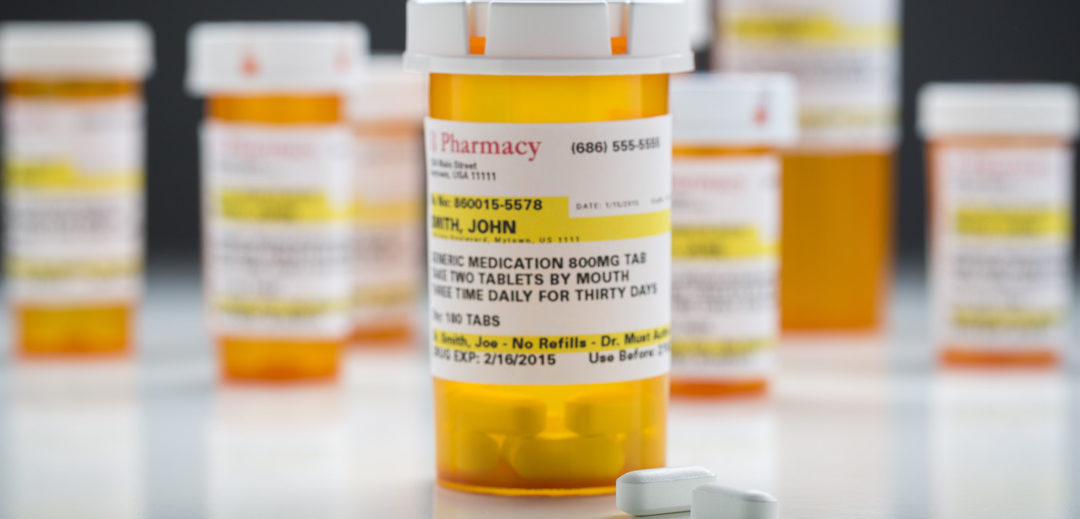Prescription drug abuse is common in America but it can have serious medical consequences. In the U.S., rates of prescription drug abuse are highest among young adults ages 18 to 25, but according to the 2017 National Survey on Drug Use and Health, about 18 million people misused prescription drugs over the past year.1
What is Prescription Drug Abuse?
Prescription drug abuse is defined as using prescription drugs in any way that a doctor did not direct, such as:
- Using prescription drugs without a prescription
- Taking larger amounts of prescription drugs than directed by a doctor
- Taking prescription drugs more often than directed by a doctor
- Taking prescription drugs for longer than directed by a doctor
- Using prescription drugs in any other way than directed by a doctor
Why Do Adults Abuse Prescription Drugs?
For those standing on the sidelines watching a loved one fall deeper into addiction, it may be unclear why they started misusing prescription drugs or what keeps them coming back for more. Unfortunately, substance use disorder is a complex disease and we may not always understand all the causes and contributing factors. However, a 2017 report from the Substance Abuse and Mental Health Services Administration (SAMHSA) provides some insight.
According to the 51,200 individuals surveyed by SAMHSA for the report, here are the most common reasons for abusing prescription drugs.
| Type of Drug | Number of People Misusing in the Past Year | Most Common Reasons for Abuse |
| Prescription pain relievers | 11.5 million | To relieve physical pain (63.4%) |
| Prescription tranquilizers | 5.7 million | To relax or relieve tension (46.2%)
To help with sleep (21.2%) |
| Prescription stimulants | 4.8 million | To help be alert or to stay awake (28.4%)
To help concentrate (26.2%) To help study (22.4%) |
| Prescription sedatives | 1.4 million | To help with sleep (73.2%) |
Source: https://www.samhsa.gov/data/report/why-do-adults-misuse-prescription-drugs
Although some people only abuse prescription drugs to get high, the data above shows that most people start abusing these medications because of other issues they are facing.
Most Commonly Abused Prescription Drugs
There are many different types of prescription drugs available in the U.S., but these are the most commonly abused.
Prescription Opioids
About four percent of Americans suffer from opioid use disorder, with 6.3 million abusing hydrocodone, 3.7 million abusing oxycodone, and 245,000 abusing fentanyl. Other commonly abused prescription opioids include codeine, tramadol, morphine, methadone, and buprenorphine. 83% of these individuals bought/got for free, or stole the drugs from people who were prescribed by a single prescriber.2
Benzodiazepines
Doctors often prescribe benzodiazepines for problems like anxiety, insomnia, withdrawal symptoms, or seizures. There are about 15 different FDA-approved benzodiazepines in America and some of the most commonly abused include Ativan, Halcion, Librium, Valium, Xanax, and Klonopin.3 About 1.5 million Americans misused benzodiazepines for the first time in 2017.1
Sleep Medications
Prescription sleep medications include drugs like Ambien (zolpidem), Sonata (zaleplon), and Lunesta (eszopiclone). These drugs are some of the most commonly prescribed medications, with about 38 million prescriptions for Ambien alone written between 2006 and 2011. When taken as directed by a doctor, these prescription drugs are safe and effective. However, when they’re abused, they can cause addiction and withdrawal symptoms. About 271,000 Americans misused sleep medications for the first time in 2017.1
Prescription Stimulants
Prescription stimulants like Adderall, Concerta, Ritalin, and Dexedrine are often misused by college students, professionals, athletes, and people who are trying to lose weight. More than 1 million Americans misused prescription stimulants for the first time in 2017.1 These drugs are frequently referred to as “smart drugs” or “study drugs” because they can increase mental focus, concentration, and stamina. However, studies have not proven that they improve cognitive abilities, despite claims from users that they do.
Dextromethorphan (DXM)
Dextromethorphan is a drug that is found in some prescription and over-the-counter medications like Robitussin. Misusing this drug is also known as “robotripping” and it can produce powerful psychedelic effects similar to those of PCP or ketamine. Teens are most likely to abuse DXM although many states are now restricting access to over-the-counter drugs that contain dextromethorphan to teens under the age of 18.
Health Risks of Prescription Drug Abuse
Since you can get prescription drugs from a doctor, many people have a false sense of security about taking them. In truth, prescription drugs can be just as dangerous as illegal drugs like heroin or cocaine if they are abused.
Aside from the ability to cause physical dependence, addiction, or deadly overdose, here are some of the common health risks associated with prescription drug abuse.
| Type of Prescription Drug | Health Risks Associated with Abuse |
| Depressants
(barbiturates, benzodiazepines, sleep medications) |
|
| Opioid painkillers
(codeine, morphine, methadone, fentanyl, oxycodone, hydrocodone, oxymorphone, meperidine, propoxyphene) |
|
| Stimulants
(Adderall, Dexedrine, Ritalin, Concerta) |
|
| Dextromethorphan (DXM) |
|
Source: https://www.drugabuse.gov/sites/default/files/rx_drugs_placemat_508c_10052011.pdf
Prescription Drug Detox Program in Houston
If you or a loved one is addicted to prescription drugs, there is help available. At Briarwood Detox Center, we offer a personalized prescription drug detox program in Houston to help you overcome your addiction and move forward with your life.
Each of our Houston detox programs begins with a comprehensive assessment to determine your treatment needs. During detox, you’ll have the option to stay in a spacious shared room or your own private room (if available). We also offer executive detox programs for those who need access to a personal computer, cell phone, and additional privacy during detox.
Medical detox provides round-the-clock medical and clinical support to ensure your safety and comfort at all times. Prescription drug withdrawal doesn’t have to be dangerous or miserable. We are here to help you every step of the way.
Call (832) 648-4412 to speak with a Briarwood admissions representative and learn more about our prescription drug detox program in Houston, TX.
References:

